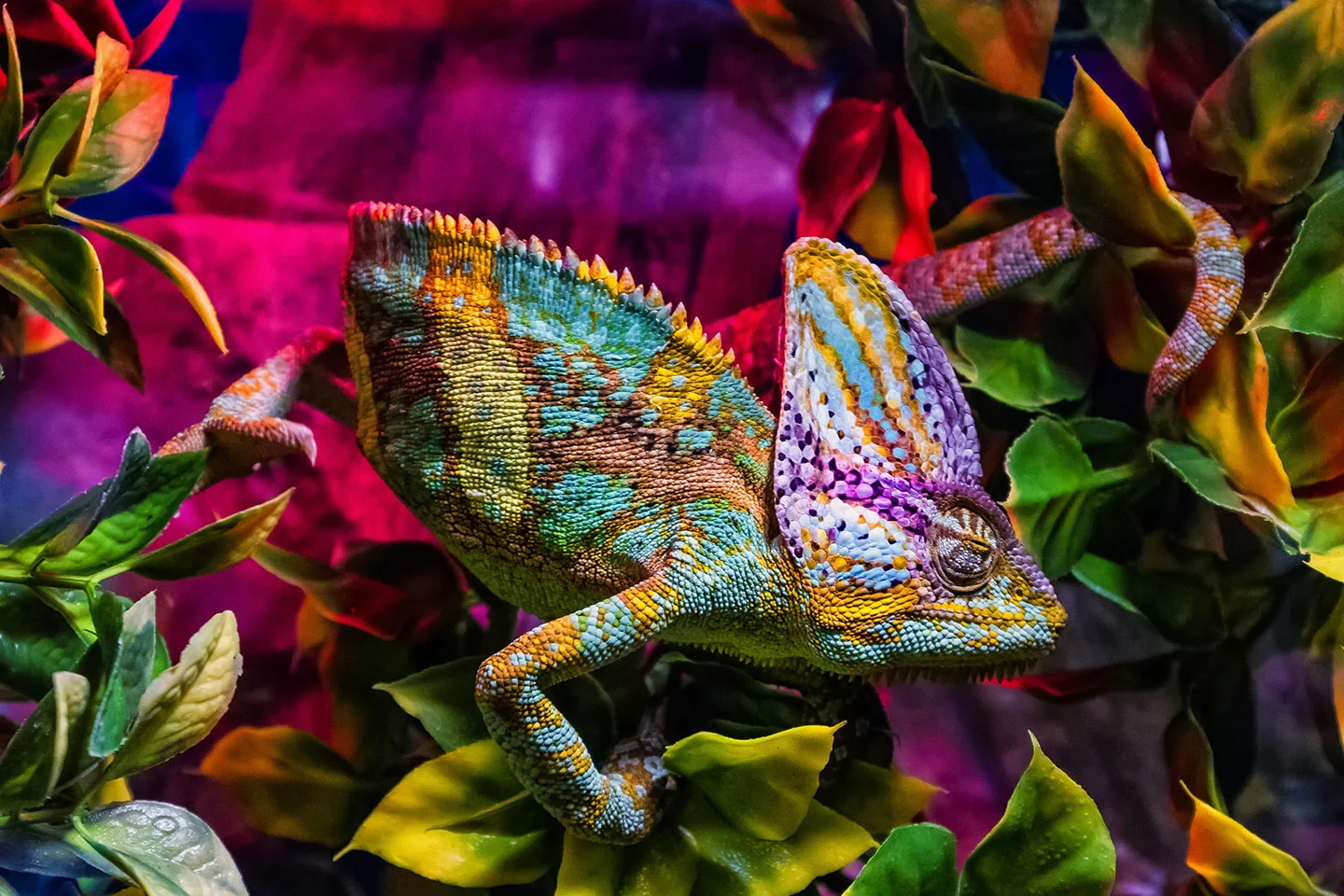
Adaptation is a fascinating biological phenomenon that allows organisms to survive and thrive in their environments. Whether it’s the ability of certain species to camouflage themselves, the development of specialized organs, or the evolution of behaviors that enhance their chances of survival, adaptation is key to the success of living organisms.
In this article, we will uncover 11 enigmatic facts about adaptation that will leave you awe-inspired and thrilled by the intricacies of the natural world. From peculiar adaptations in plants to remarkable strategies employed by animals, these facts will not only deepen your understanding of the subject but also ignite a sense of wonder for the incredible diversity of life on our planet.
Key Takeaways:
- Adaptation is a crucial survival skill for all living things, helping them adjust to their surroundings and thrive. It can happen at different levels and is driven by natural selection.
- Adaptation is an ongoing process that can happen quickly or gradually. It can be physical, behavioral, or even vestigial, and humans are especially good at adapting to different environments.
Adaptation is a fundamental biological process.
Adaptation refers to the ability of an organism to adjust to its environment in order to increase its chances of survival and reproduction. It is a key component of the theory of evolution proposed by Charles Darwin.
Adaptation can occur at various levels.
Adaptation can happen at the molecular level, with genetic changes leading to the development of new traits. It can also occur at the organismal level, where physical and physiological adjustments help organisms thrive in different environments.
Adaptation is driven by natural selection.
Natural selection acts as a mechanism for adaptation. Organisms that possess advantageous traits have a higher probability of surviving and passing on those traits to their offspring, while those with less advantageous traits are less likely to reproduce.
Adaptation can be behavioral.
Not all adaptations are physical or genetic. Behavioral adaptations, such as migration, learning, and foraging strategies, are also crucial for the survival and success of various species.
Adaptation is an ongoing process.
The process of adaptation is continuous and dynamic, as environments change over time. Organisms need to constantly adjust and evolve in response to new challenges and opportunities.
Adaptation can occur rapidly.
While many adaptations occur gradually over generations, some species have demonstrated the ability to adapt quickly to changes in their environment. This rapid adaptation is often observed in response to human-induced disruptions.
Adaptations can be specific to certain environments.
Species often develop adaptations that are specific to their particular habitats. For example, desert plants have evolved mechanisms to conserve water, while arctic animals have adapted to survive in extreme cold.
Adaptations can be morphological or physiological.
Morphological adaptations involve changes in physical structures, such as the shape of an animal’s beak or the camouflage coloration of a plant. Physiological adaptations involve modifications in internal functions, such as the ability to tolerate high temperatures.
Some adaptations are vestigial.
Vestigial adaptations are traits that no longer serve their original purpose but are remnants of past adaptations. For example, the appendix in humans is thought to be a vestigial structure from our evolutionary history.
Adaptations can be beneficial or detrimental.
While most adaptations enhance an organism’s fitness and survival, there can be instances where an adaptation becomes disadvantageous. This can happen when the environment changes dramatically or when adaptations conflict with other traits.
Humans are masters of adaptation.
One of the unique qualities of the human species is our remarkable ability to adapt to diverse environments. This capacity for adaptation has enabled us to inhabit almost every corner of the planet and thrive in a wide range of conditions.
Conclusion
Adaptation is a fascinating phenomenon that allows living organisms to thrive in various environments. From camouflage to behavioral changes, the ability to adapt is crucial for survival. The 11 enigmatic facts about adaptation discussed in this article shed light on the remarkable ways in which organisms evolve and adjust to their surroundings.
Whether it’s the astonishing resilience of extremophiles or the intricate symbiotic relationships, adaptation showcases the ingenuity and complexity of the natural world. Through the process of natural selection, species develop adaptations that enable them to better compete for resources, avoid predators, or withstand harsh conditions. Understanding and appreciating these adaptations can lead to breakthroughs in numerous fields, from medicine to engineering.
Adaptation is a never-ending journey of discovery and innovation, and unraveling its mysteries continues to captivate scientists and researchers around the world. By studying the intricacies of adaptation, we gain valuable insights into the evolutionary processes that have shaped life on Earth.
FAQs
Q: What is adaptation?
A: Adaptation refers to the process through which living organisms change and adjust to their environment in order to survive and reproduce.
Q: How do organisms adapt?
A: Organisms adapt through the process of natural selection, where favorable traits are passed on to the next generation, allowing them to better adapt to their surroundings.
Q: Can all organisms adapt?
A: While most organisms have the ability to adapt to some extent, the extent and rate of adaptation can vary depending on the species and environmental factors.
Q: What are physical adaptations?
A: Physical adaptations are physical features or traits that help an organism better survive in its environment, such as camouflage or specialized appendages.
Q: What are behavioral adaptations?
A: Behavioral adaptations are actions or behaviors exhibited by organisms that increase their chances of survival or reproduction, such as migration or cooperative hunting.
Q: Are adaptations permanent?
A: Adaptations can be temporary or permanent, depending on the environmental conditions and the selective pressures acting on the organism.
Q: Can organisms adapt quickly?
A: Some organisms, such as bacteria or insects with short lifespans, have the ability to adapt relatively quickly, while others, like larger mammals, may take longer to adapt.
Q: Are all adaptations beneficial?
A: Not all adaptations are beneficial. Sometimes adaptations may be neutral or even detrimental, depending on changes in the environment or other factors.
Q: Can humans adapt?
A: Humans have the ability to adapt through cultural, technological, and physiological means. Our ability to adapt has played a significant role in our survival and dominance as a species.
Q: Can adaptations occur within a single generation?
A: Some adaptations can occur within a single generation through epigenetic factors, allowing organisms to respond to immediate environmental changes.
Q: How do scientists study adaptations?
A: Scientists study adaptations through various methods, including field observations, genetic analyses, experimental studies, and computer modeling.
Adaptation is a captivating subject, but there's more to explore! Rowers harness their bodies' incredible adaptive abilities. Our senses undergo remarkable changes to help us perceive the world around us. In nature, adaptive radiation has led to the development of countless unique species. Keep reading to learn more about these fascinating aspects of adaptation and how they shape the world we live in.
Was this page helpful?
Our commitment to delivering trustworthy and engaging content is at the heart of what we do. Each fact on our site is contributed by real users like you, bringing a wealth of diverse insights and information. To ensure the highest standards of accuracy and reliability, our dedicated editors meticulously review each submission. This process guarantees that the facts we share are not only fascinating but also credible. Trust in our commitment to quality and authenticity as you explore and learn with us.


